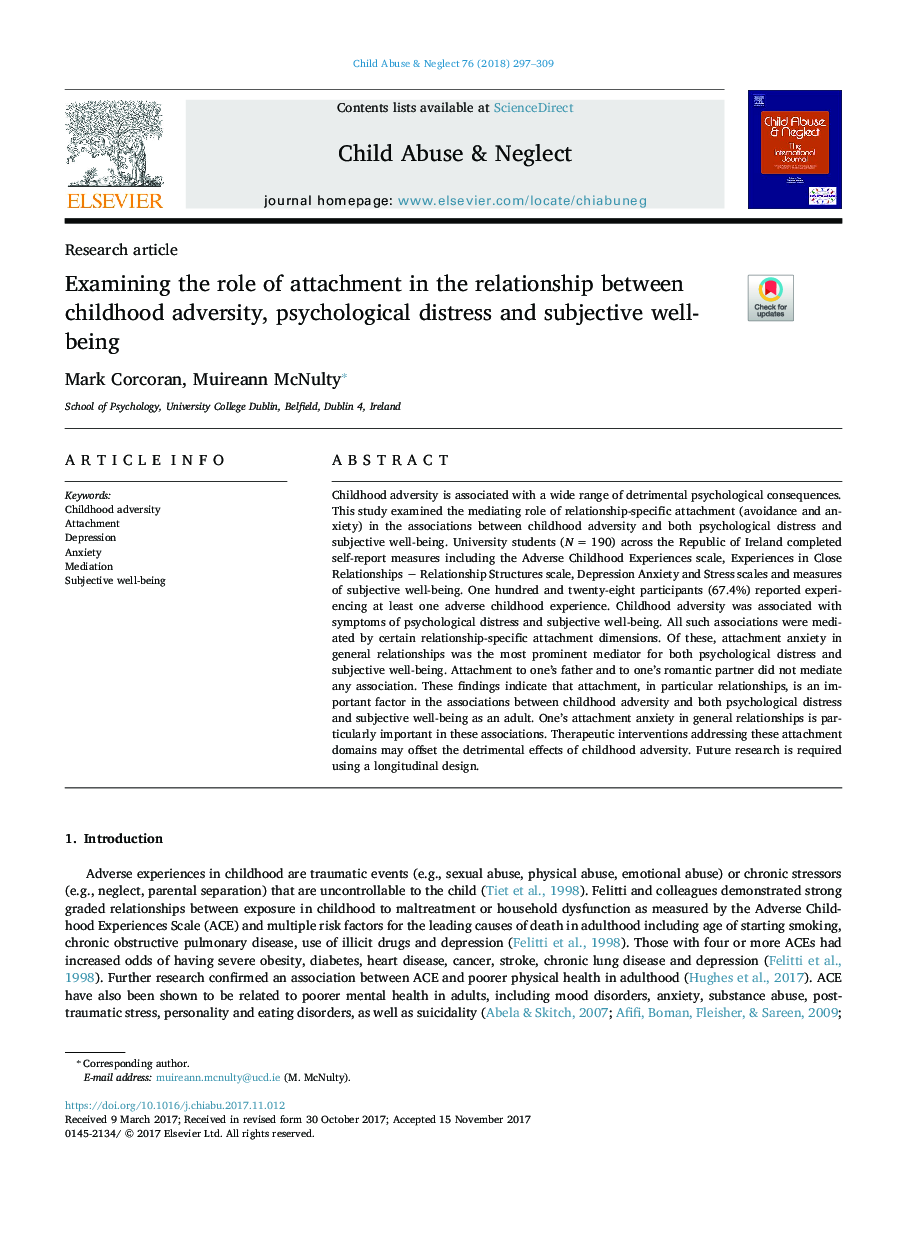| Article ID | Journal | Published Year | Pages | File Type |
|---|---|---|---|---|
| 6832148 | Child Abuse & Neglect | 2018 | 13 Pages |
Abstract
Childhood adversity is associated with a wide range of detrimental psychological consequences. This study examined the mediating role of relationship-specific attachment (avoidance and anxiety) in the associations between childhood adversity and both psychological distress and subjective well-being. University students (NÂ =Â 190) across the Republic of Ireland completed self-report measures including the Adverse Childhood Experiences scale, Experiences in Close Relationships â Relationship Structures scale, Depression Anxiety and Stress scales and measures of subjective well-being. One hundred and twenty-eight participants (67.4%) reported experiencing at least one adverse childhood experience. Childhood adversity was associated with symptoms of psychological distress and subjective well-being. All such associations were mediated by certain relationship-specific attachment dimensions. Of these, attachment anxiety in general relationships was the most prominent mediator for both psychological distress and subjective well-being. Attachment to one's father and to one's romantic partner did not mediate any association. These findings indicate that attachment, in particular relationships, is an important factor in the associations between childhood adversity and both psychological distress and subjective well-being as an adult. One's attachment anxiety in general relationships is particularly important in these associations. Therapeutic interventions addressing these attachment domains may offset the detrimental effects of childhood adversity. Future research is required using a longitudinal design.
Related Topics
Health Sciences
Medicine and Dentistry
Perinatology, Pediatrics and Child Health
Authors
Mark Corcoran, Muireann McNulty,
